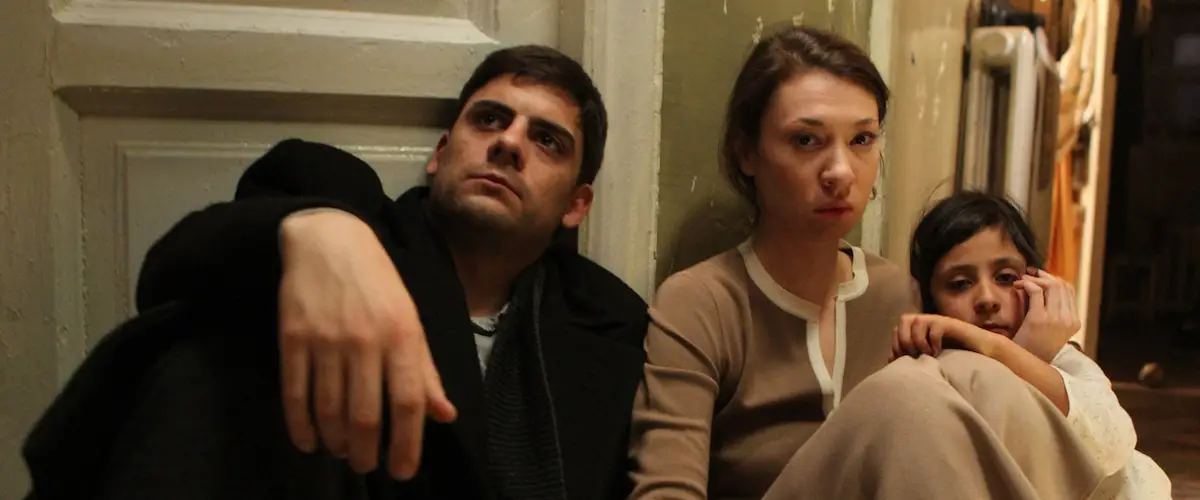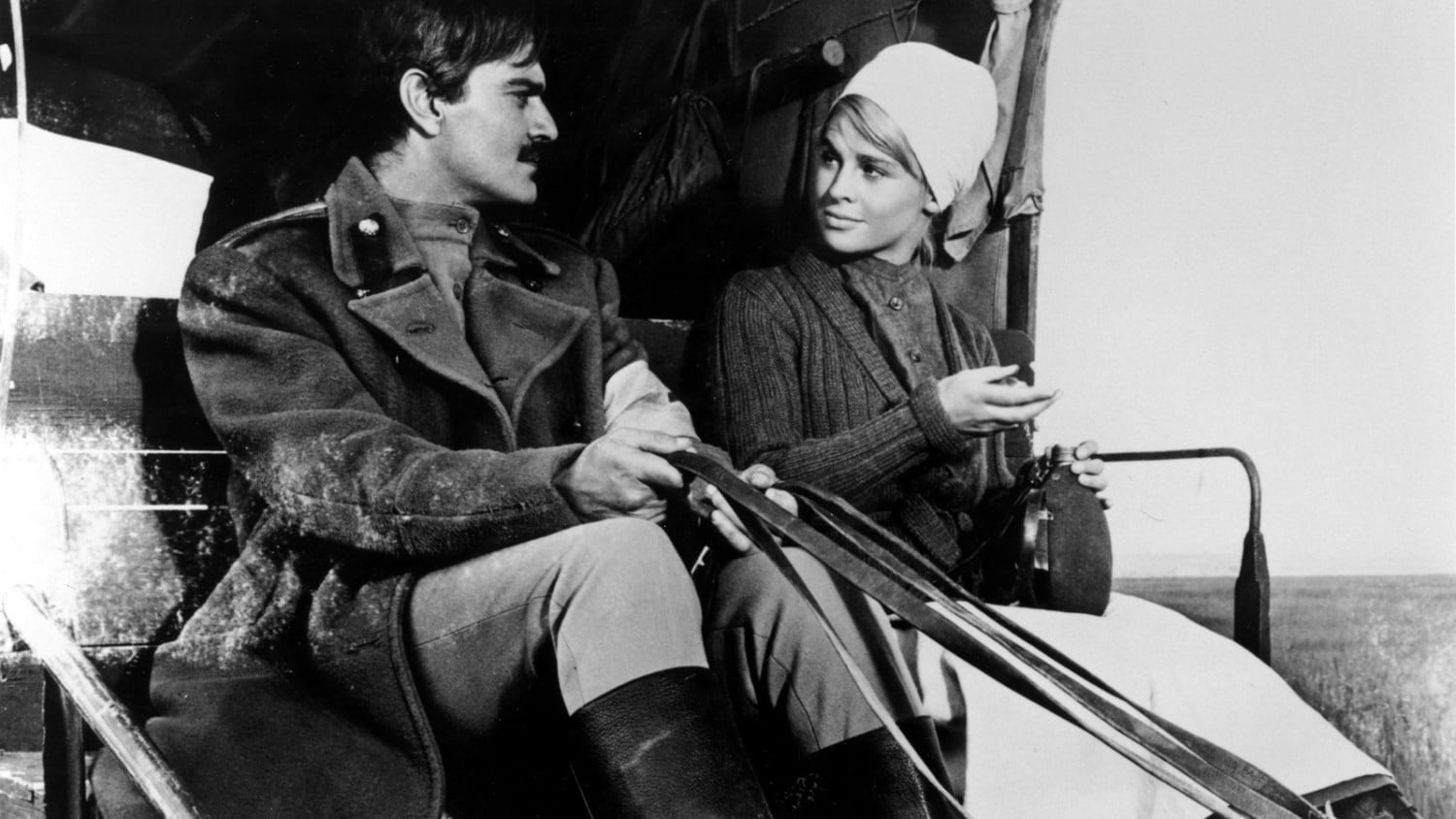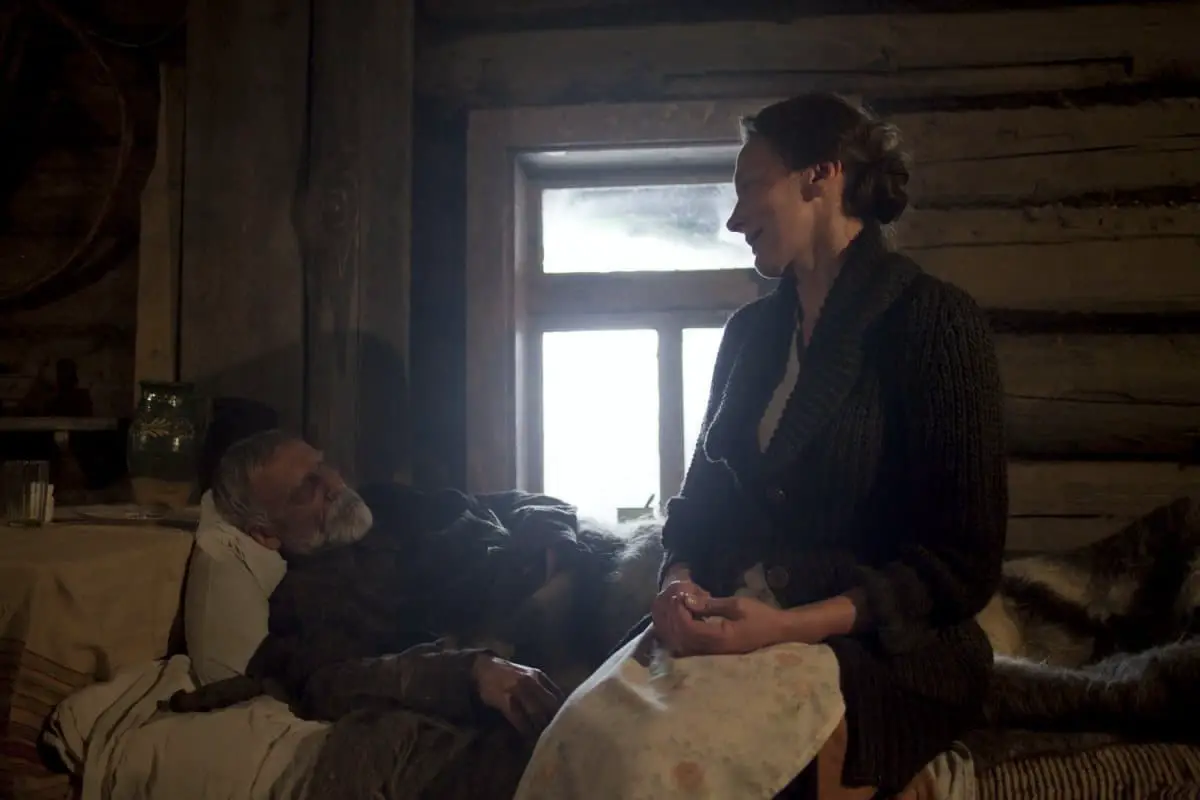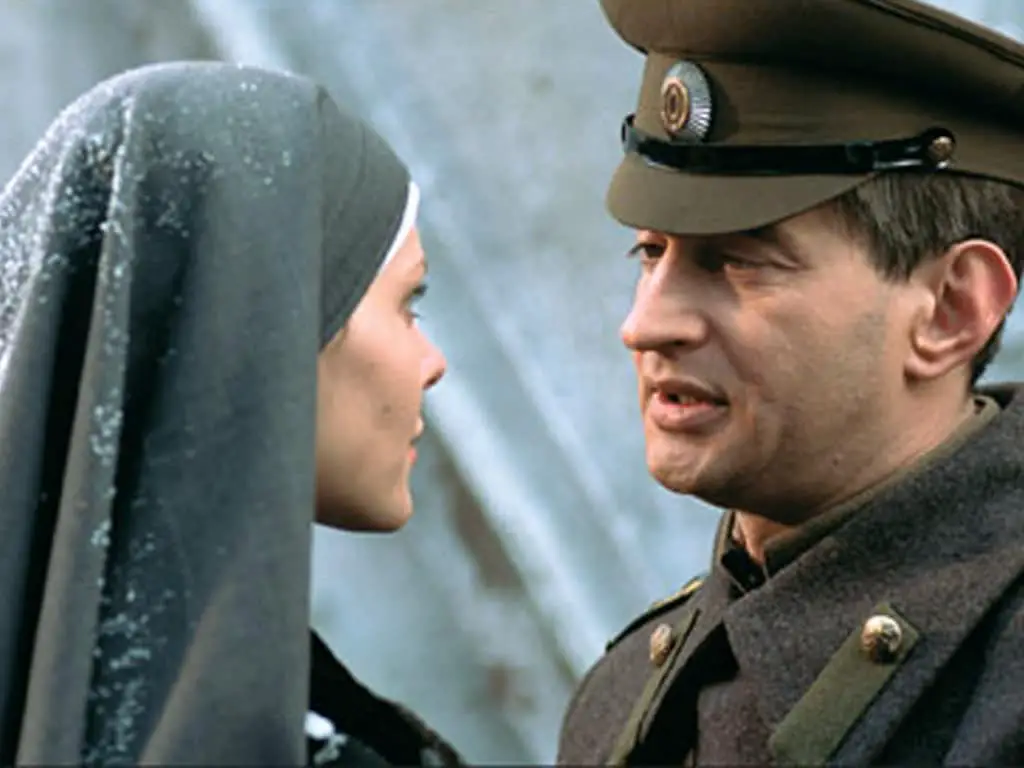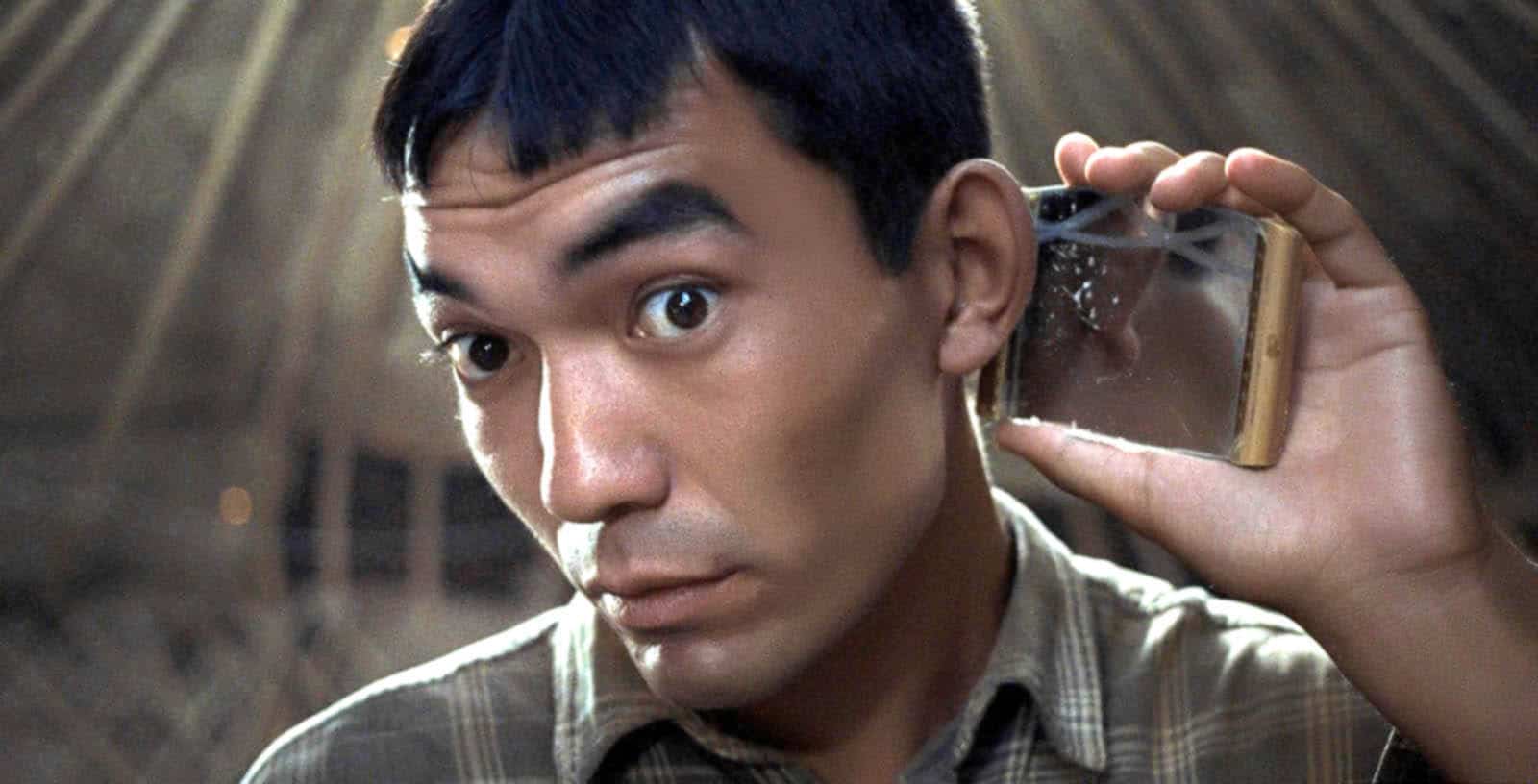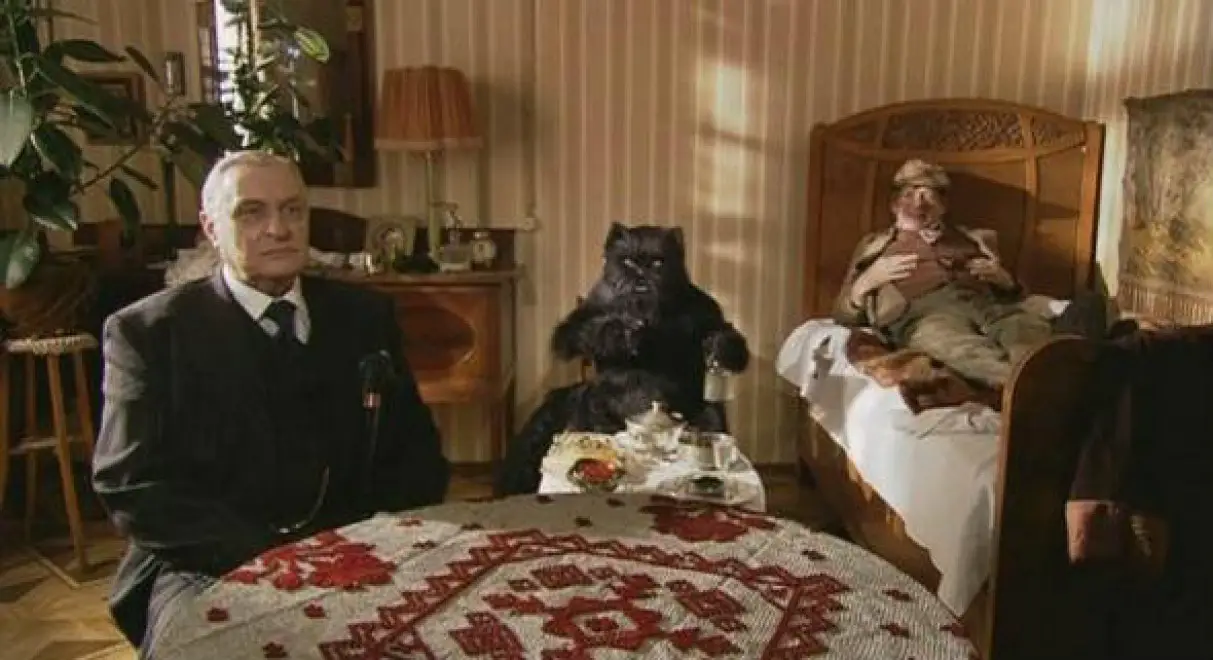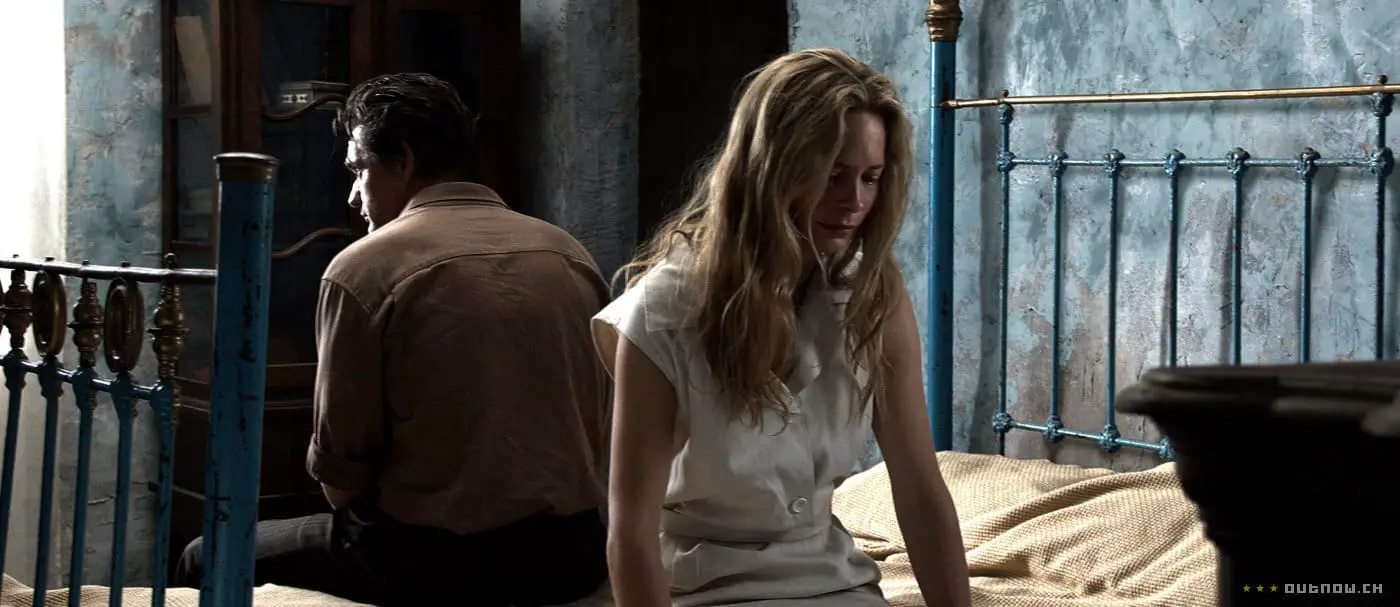The movie Довлатов (Dovlatov) originally premiered on 17 February at the 2018 Berlin International Film Festival. The film was produced by Metrafilms, SAGa, and Art and Pop Corn, and was directed by Aleksei German Jr. The film is available on Netflix with English subtitles and on the Russian streaming service ivi, without subtitles.
Довлатов is a biographical film, recounting a week in the life of Sergei Dovlatov, one of Russia’s most popular and influential writers of the 20th century. Milan Maric stars as Sergei Dovlatov, displaying the hardships of being a writer in the USSR, and how one could not publish without being a part of the Writers’ Union. Dovlatov’s family struggles are also shown with his wife Elena, played by Helena Sujecka, and his daughter Katya, played by Eva Herr, while attempting to publish his novel.
Below, you can see Vladimir Pozner, well known Russian-American journalist, share his thoughts in Russian on why Довлатов is well-worth watching on Channel One, as well as an English-language synopsis and analysis of the film from the point of view of a student of Russian watching the film.
https://www.youtube.com/watch?v=zdlceOk7mm4
Synopsis of Dovlatov
The film opens with Dovlatov awakening in his mother’s communal apartment on 1 November, 1971 in Leningrad, days before the anniversary of the October Revolution. He says that he dreamt of having pina coladas with Brezhnev, and that maybe he could get published if they were good friends. His mother, whom he has told he would be a writer since he was eight years old, tells him those that are not members of the Writers’ Union will no longer be able to publish in the newspapers soon. Dovlatov calls his wife, Elena, to discuss his dream. After she accuses him of being drunk, she hangs up on him. Dovlatov then goes to his job at a newspaper run by a factory.
The factory newspaper has assigned Dovlatov to write an article about a film they are producing about ship construction. Dovlatov hates the film and writes sarcasm and ironic humor into his article. He is ordered to rewrite it.
Dovlatov then meets his wife and daughter Katya at the park. His wife tells him that continuing to try to publish his novel is pointless. Katya tells him that her friend got a huge German doll. Dovlatov asks her where he could buy her one, and she tells him not to worry because he doesn’t have the money. He then goes to a literary reading with his daughter and there meets his friend Joseph Brodsky, who will later be regarded as one of Russia’s greatest poets. Inside the literary reading, everyone is sad, sarcastic, and cranky, arguing that no artist, writer, or painter, is able to accomplish anything. Brodsky and Dovlatov leave into the frosty streets to walk Katya home.
The film continues with Dovlatov trying to get published and being sent on assignments as a journalist, where much of what he uncovers is frightfully depressing historical stories.
Dovlatov and his friend Kuznetsov go to a party hoping to receive entry into the Writers’ Union after meeting Semion, a person of rank in the union. However, his request is denied, and the writers go to an apartment to drink with friends.
On Revolution Day, people are shown marching, shouting, and parading. Dovlatov on the other hand, is still trying to find his daughter a German doll, and contemplating his desire to be a writer.
The day after, Dovlatov finds that one of his acquaintances, a fellow writer who also could not publish, has slit his wrists. Other acquaintances respond with horror, while some respond with no sympathy at all, saying that they too have not been published. Dovlatov then meets Brodsky, who reveals that he has been threatened with jail if he does not leave the USSR. Dovlatov meets his friend David, a painter who cannot get his work approved. While they are together, David is approached by an agent from the Economic Security Department and arrested for being unemployed. David attempts to run, only to be hit by a car full of soldiers. All in one day, Dovlatov has lost two colleagues, and knows he will soon be losing Brodsky.
The next day, Dovlatov is fired from his job at the factory newspaper for not taking the ship construction article seriously. Shortly thereafter, Dovlatov is approached by Semion and a car full of young actresses, and asked to go to a party. Dovlatov screams “no.” He has become overwhelmed with every component of his life, and is lost. The scene then cuts to him and Brodsky on the streets at night. The film gives a written epilogue that Joseph Brodsky was exiled, but won the Nobel Prize in Literature in 1987. He died in the United States, then known as one of Russia’s greatest poets.
The film then cuts to Dovlatov returning to his apartment, completely drunk, and in sorrow. His wife talks to him, and lets him know that they will get through it together as a family, and that he must not worry about what others think of his novel. The film ends with another epilogue stating that Dovlatov was first published almost 20 years later, and died of a heart attack at only 48 years old in New York in 1990. Dovlatov gained recognition in Russia as a great Russian writer only after his death.
Watching the Film as a Student of Russian
The film Довлатов is very fast paced, and at certain times hard to keep up with, even when watching with subtitles. However, this can also be said to fit the setting of the film. The USSR during the 1970s was anything but simple.
The film also gives interesting insights to how classic literature was viewed at that time through conversations about figures like Pushkin and Chekhov, made throughout the film. It may be difficult to tell what is being talked about, or the importance of the conversations, without some basic Russian literary knowledge.
The film also shows life in communal apartments, which is interesting.
Довлатов would be a great film to watch for any student or individual studying, or seeking to enhance their knowledge about Russian culture. More so, the film plays out like a work of classic Russian literature, with themes of family, tragedy, and culture. The nature of reality also comes up, with Dovlatov stating multiple times that society does not know the difference between truth and fiction.
According to IMDb, Довлатов received a 6.4 out of 10 star rating. Its Rotten Tomatoes score is 80% while the audience score is 57%. However, these scores are limited by rather low participation in the voting. In its favor, the film received several awards such as Outstanding Artistic Contribution in 2018 at the Berlin International Film Festival, Best International Film in 2018 at the Haifa International Film Festival, and Best Film in 2018 at the Seville European Film Festival. Dovlatov is a great film to watch for all viewers, especially those interested in Russian literature.
The film is available on Netflix with English subtitles and on the Russian streaming service ivi, without subtitles.
Official Trailer for Dovlatov
https://www.youtube.com/watch?v=C2yPMWU3NZ0


